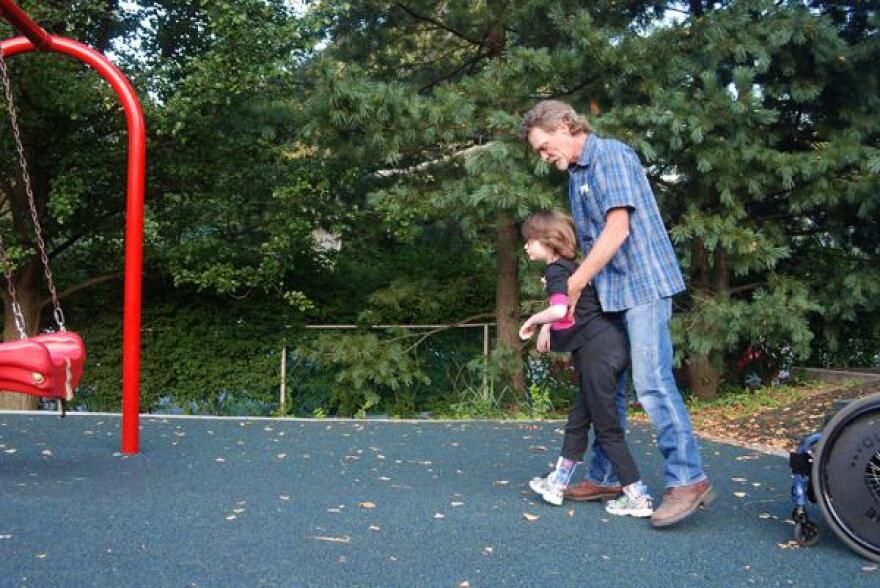Missy Buss, a 9-year-old who can’t walk or talk, endures a 45-minute drive to the closest swing that will accommodate a wheelchair -- a treat that relaxes her shoulders and coaxes a smile.
Her mom, Wendy Grossman, thinks there would be more friends around the house if a playground near their Tarentum home allowed Missy to play alongside others.

Cheryl Dennis of Squirrel Hill talks about “the coolest” playground in the Pittsburgh area, but it’s a place she can’t take her son, Spencer, to play with his sisters because he has balance and coordination problems.
“We’re a family with a disability,” she said. “When there’s something that Spencer can’t do, it’s often something we all can’t do.”
The U.S. Department of Justice made access to play areas a civil right under the Americans with Disabilities Act when, in 2010, it adopted stringent standards that require playgrounds to have surfaces and equipment that can be used by disabled children. The requirements became effective last year.
Parents and advocates want still more. They want “inclusive” playgrounds, spots that are fun and safe for both typical children and those with intellectual and physical disabilities.
“Play is an important social opportunity for children,” said Jeni Hergenreder, an attorney with the Disability Rights Network of Pennsylvania. “To be able to play on public playgrounds with other kids … is important for their inclusion in all aspects of community life.”
Read more of this report on the website of our partner PublicSource.




